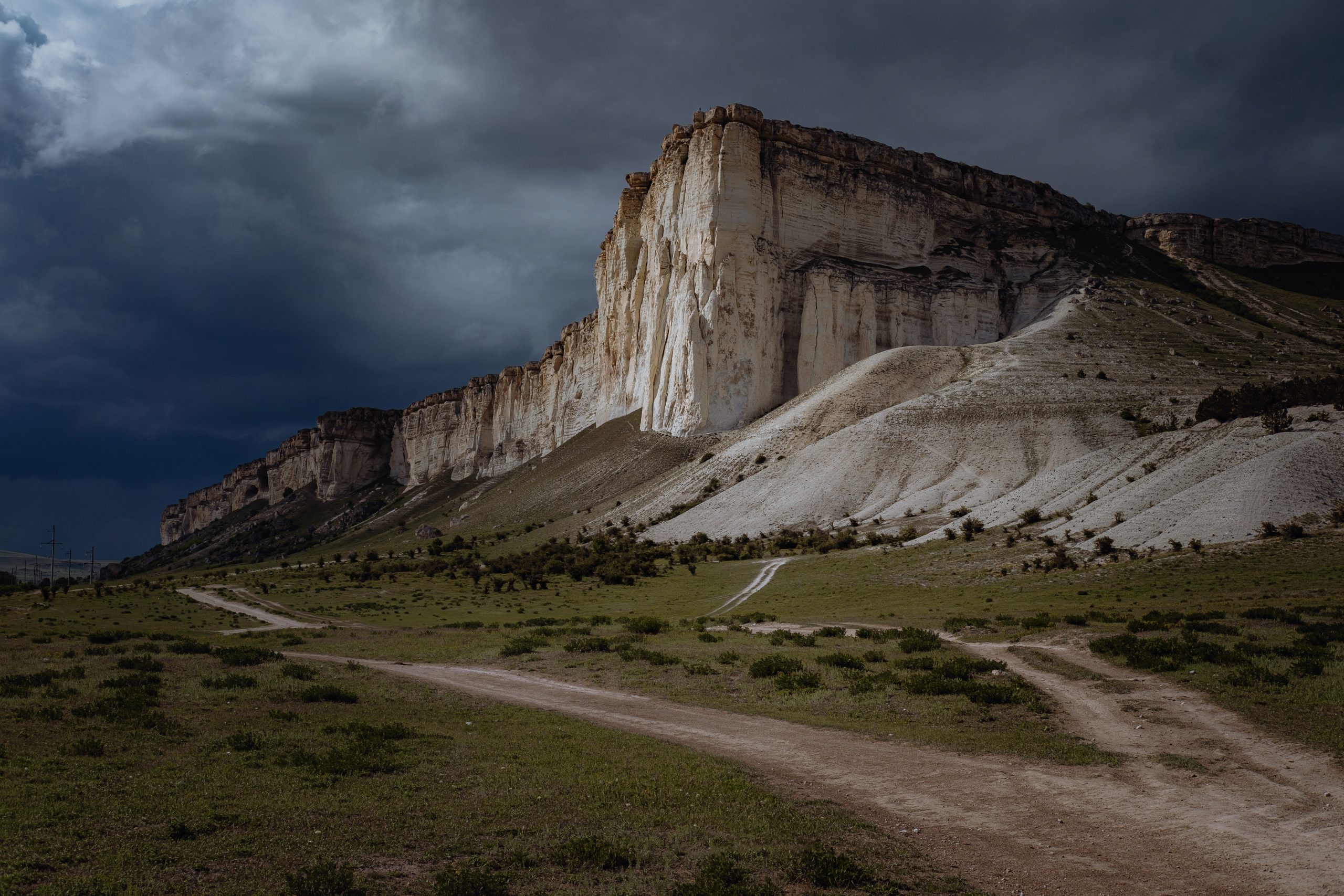
In the documentary “Skywalkers: A Love Story,” available on Netflix on Friday, we meet Ivan Beerkus and Angela Nikolau, who separately shared an unusual fascination. Both growing up in Russia, they were obsessed with climbing tall buildings, wowing online followers with their often-illegal exploits. Part of a growing group of so-called rooftoppers, they eventually met, collaborating on artistic, death-defying photo and video projects, falling in love in the process. The film captures both the couple’s dizzying climbs and swooning romance, reminding us that relationships are often mysterious, powerful things.
Hollywood delivers plenty of love stories every year, but several great documentaries have also explored matters of the heart, putting compelling relationships right at the center of the story. Seeing real-life couples navigate their issues in front of the camera can be intoxicating—not to mention reassuring to the rest of us that every relationship encounters rough patches. Below, in chronological order, are 10 stellar documentary love stories, each of them insightful in their depiction of devotion and commitment.
“A Married Couple” (1969)
Long before there was reality television, there was this stunning Allan King documentary, in which the Canadian filmmaker was granted permission to chronicle a couple’s unraveling relationship in their own home. “They will appear at first glance to be a typical married couple,” King said of “A Married Couple.” “But people are not generalities. They are individual, unique, and special.” What King uncovered was both people’s inclination to perform in front of the camera and the tendency for real life to be more dramatic than fiction. As a result, the viewer is put in the then-strange position of being a voyeur watching the intimate machinations of a warring couple. Rarely anything as visceral or violent has happened on “Couples Therapy.”
“Sherman’s March” (1986)
No doubt many aspiring male filmmakers got into their chosen profession to meet girls. But few of them pursued that goal as straightforwardly as Ross McElwee in his landmark documentary. Initially, he was planning on putting together a film about William Tecumseh Sherman, the Civil War general who helped defeat the Confederate Army. But after enduring a tough breakup, McElwee called an audible, retracing Sherman’s “March to the Sea” while simultaneously talking to women along the way—with his camera rolling, of course. Rather than coming across as cringey or creepy, though, “Sherman’s March” documents a melancholy soul trying to figure out love and relationships, allowing him to be present while also not. “[T]hat’s the whole notion behind cinéma vérité, that you can remain a silent observer behind the camera,” McElwee once said, later adding, “[W]hen life has been rough I’ve taken some solace in simply ceasing to try to understand it and simply recorded it, collect it, and store it away for future analysis.” With “Sherman’s March,” he lets us inside his broken heart.
“The Loving Story” (2011)
Perhaps you saw Jeff Nichols’ Oscar-nominated “Loving,” starring Joel Edgerton and Ruth Negga as an interracial couple in 1967 fighting to have their marriage be deemed legal, taking the fight all the way to the Supreme Court. “The Loving Story” helped inspire Nichols’ drama: Nancy Buirski’s debut documentary takes a close look at that court case, Loving v. Virginia. The film recounts Richard and Mildred Loving’s relationship—they married in 1958 in D.C., only to move home to Virginia, which rescinded their license—and also casts a harsh light on our country’s racist past. If you’ve familiar with “Loving,” you know this story has a happy ending, but “The Loving Story” only emphasizes this couple’s simple decency and abiding love.
“Cutie and the Boxer” (2013)
Being an artist in the modern world is hard enough—what if your partner is one, too? Zachary Heinzerling won Best Director at Sundance for his film about Noriko and Ushio Shinohara, a married couple trying to make a name for themselves while raising a family. Both artists and both endearing, they nonetheless have their issues—namely, that Ushio tends to be self-absorbed, leaving Noriko to be more of the parent and homemaker. “Cutie and the Boxer” is just as interested in this couple’s creative life as it is in the 40-year negotiation of the rules of their relationship, which over the course of the documentary begin to shift. The film is incredibly sweet—the central subjects could not be more likable—but there’s a constant undercurrent of tension and bittersweetness. This couple may be cuties, but they’re far from a perfect union.
“My Love, Don’t Cross That River” (2013)
What’s dramatically compelling about a happy, long-lasting relationship? Who wants to see two elderly people just enjoy each other’s company? And yet, “My Love, Don’t Cross That River” was a huge box office hit in its native South Korea, filmmaker Jin Mo-young introducing viewers to the blissful marriage of Jo Byong-man (who’s 98) and Kang Gye-yeul (who’s 89) as they look back at a love affair that has lasted more than 75 years. It’s not as if the film is devoid of conflict—the specter of age hangs over the proceedings—but this couple refuses to give in to morbidity. As Jo puts it, “Time passes, people get old. There’s nothing you can do about it.” Magical thinking? Maybe, but “My Love” argues that seeking the joy in life may be one of the secrets to this pair’s enduring courtship—until, of course, death finally intervenes.
“Limited Partnership” (2014)
For a brief time in 1975, Boulder County clerk Clela Rorex decided to issue same-sex marriage licenses, long before such marriages were legal in any of the United States. One couple to take advantage of this was Richard Adams and Tony Sullivan, who had started dating a few years earlier. But their legally iffy license would prove to be a problem—not to mention the fact that Sullivan, who was Australian, eventually faced deportation due to an expired tourist visa. “Limited Partnership” compassionately maps their love affair while doubling as a history of America’s callous treatment of LGBTQ+ individuals. Many of the couples on this list encountered hardships, but as this film demonstrates, none were as onerous as what Adams and Sullivan endured.
“Free Solo” (2018)
Myriad biopics focus on famous, driven men, with their wives often secondary characters who are little more than supportive figures in their husband’s narrative. Maybe we hear about the women’s struggle of being in her spouse’s shadow, but the films are ultimately about what the man must do in order to complete his goal. The Oscar-winning “Free Solo” brings that dynamic to its portrait of renowned climber Alex Honnold, but directors Elizabeth Chai Vasarhelyi and Jimmy Chin—themselves a married couple—interrogate this tendency to fascinating effect. We learn about Honnold’s compulsion to put himself in harm’s way as he executes his free solo climbs, all the while falling in love with life coach Sanni McCandless, who doesn’t want to change him but understandably fears for his safety. “Free Solo” looks seriously at love and career—about following your passion while making room for your significant other—while acknowledging how difficult the compromises can be. The film was heralded for its footage of Honnold’s anxiety-inducing climbs, but the examination of relationships is equally riveting.
“Time” (2020)
Anger and sorrow pulsate through Garrett Bradley’s Oscar-nominated look at the efforts Sibil Fox Richardson underwent to get her husband Robert Richardson released from prison. Both of them sentenced for their part in a robbery, Fox has recently been set free, but her husband is in the midst of a 60-year sentence. (If that sounds like an extreme punishment, it is—especially considering that no one was hurt in the robbery.) The bulk of Bradley’s film consists of nearly 20 years of footage Fox shot of her and their children—a digital record for her incarcerated husband of the time he missed. “Time” is a document of pure love, Fox fighting for her husband in the face of a racist justice system. We see their children grow up in that footage while Fox grows older, but their resilience in believing that Robert will get out of prison never diminishes.
“Fire of Love” (2022)
Katia and Maurice Krafft devoted their lives to studying volcanoes—a passion that led to tragedy. One of the fascinations of Sara Dosa’s film is that it doesn’t pretend to have the answers for why, exactly, they were drawn to such dangerous work. (Indeed, you can watch “Fire of Love” and remain uncertain how to feel about their obsession.) But this is part of Dosa’s point: Others’ romantic relationships are often baffling to the rest of us, only making sense to the two people who have decided to commit themselves to one another. Drawing from archival footage shot by the Kraffts over their career as they got up close and personal with volcanoes around the world, “Fire of Love” captures the beauty, terror and power of those naturally-occurring phenomena—a force as wild and unpredictable as Katia and Maurice, who were unusual souls lucky enough to find one another.
“The Eternal Memory” (2023)
When couples get married, the “in sickness and in health” part of the vows is something the newlyweds probably try not to think about—none of us want to ponder a future in which either of us is ailing. But this Oscar-nominated documentary presents that sober reality, taking us into the world of Chilean couple Augusto Góngora and Paulina Urrutia. Years ago, Góngora (a renowned journalist) received an Alzheimer’s diagnosis, which required his longtime spouse (a celebrated actress) to care for him. Directed by Maite Alberdi (“The Mole Agent”), “The Eternal Memory” is heartbreaking as it watches its aging subjects confront the unimaginable. Along the way, this examination of mortality and commitment is also one of incredible courage—if getting old is, indeed, not for sissies, we witness here a love so formidable in the face of Góngora’s cruelly deteriorating mind.




